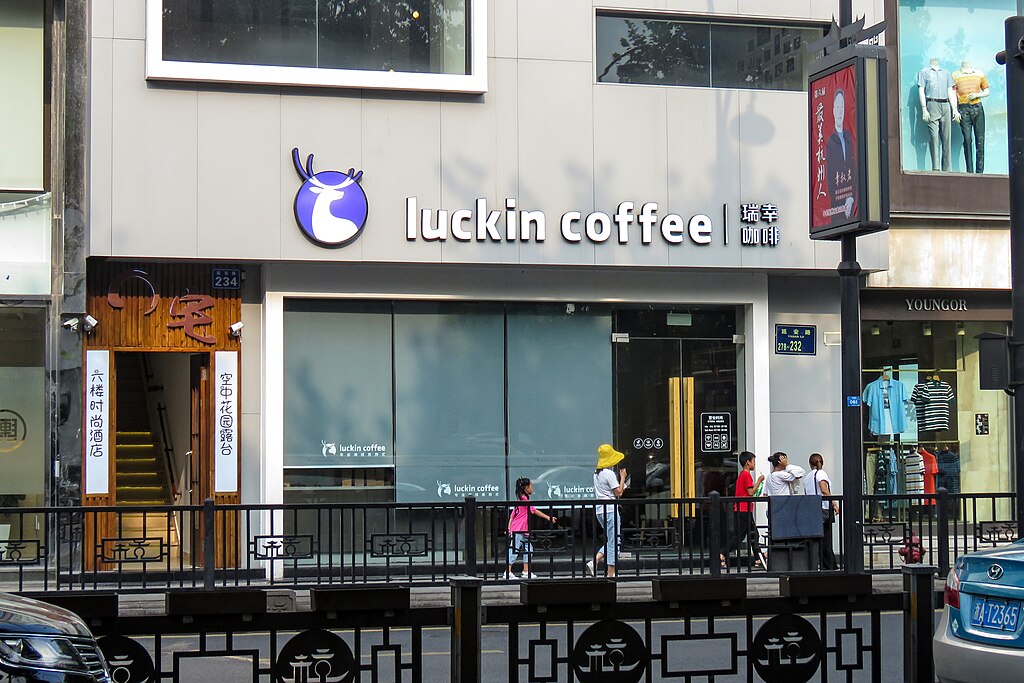On June 30, Luckin Coffee—the largest coffee chain in China—officially opened its first two U.S. locations, both in Manhattan: one in Greenwich Village, the other in NoMad. It marks the American debut of a brand that has risen at lightning speed since its founding in 2017, thanks to a tech-driven, low-cost, high-efficiency model.
Headquartered in Xiamen, southeastern China, Luckin built its empire on convenience and automation. Customers order exclusively through a mobile app, pay digitally, and pick up their drinks at minimalist counters—no cash, no seating, no cashier. In China, the model proved wildly successful, propelling Luckin past Starbucks in store count in under two years. Today, the company operates more than 22,000 stores across China and is rapidly expanding into Southeast Asia, particularly Singapore.
But New York may prove a more complex arena. Since 2020, local legislation has required businesses to accept cash—a direct challenge to Luckin’s fully digital setup. The company has yet to clarify how it will comply with U.S. regulations.
To drive attention, Luckin launched with aggressive promotions: $1.99 drinks and free tote bags for early visitors. The menu mixes classic and trendy offerings—drip coffee, espresso, cold brew, flavored lattes, matcha, and fruity drinks like the Apple Fizzy Americano and Pomelo Americano.
Luckin is no stranger to controversy. In 2020, it became the center of a major accounting scandal, accused of fabricating nearly $300 million in revenue. The fallout led to a Nasdaq delisting and over $350 million in fines and settlements. But after restructuring, the company rebounded: in 2023, it doubled its store count and posted an 87% revenue increase.
Luckin’s U.S. launch comes at a sensitive time for Starbucks. While it remains dominant in the American market, it’s under increasing pressure in China—once a key growth engine—where Luckin has steadily eroded its market share. Rumors of a partial exit from China by Starbucks, later denied, has underscored the tension.
For now, Luckin’s U.S. footprint is limited to New York. But if its low prices and app-based model catch on, it could offer a compelling alternative in a saturated market grappling with declining foot traffic and rising competition.











